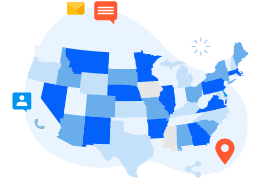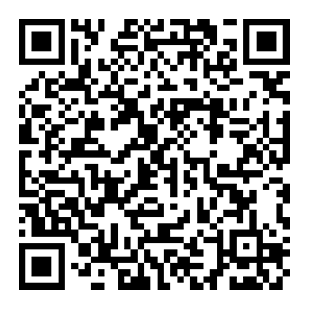奇速英语演讲奥巴马总统2016霍华德大学毕业典礼演讲
提示:点击上方”奇速英语“↑免费订阅
对于霍华德大学2016届的毕业生来说可是激动人心的一天,因为,前任美国总统奥巴马在他们的毕业典礼上开讲了!
THE PRESIDENT: Thank you! Hello, Howard! (Applause.) H-U!
AUDIENCE: You know!
THE PRESIDENT: H-U!
AUDIENCE: You know!
THE PRESIDENT: (Laughter.) Thank you so much, everybody. Please, please, have a seat. Oh, Ifeel important now. Got a degree from Howard. Cicely Tyson said something nice about me. (Laughter.)
AUDIENCE MEMBER: I love you, President!
THE PRESIDENT: I love you back.
To President Frederick, the Board of Trustees, faculty and staff, fellow recipients of honorarydegrees, thank you for the honor of spending this day with you. And congratulations to the Classof 2016! (Applause.) Four years ago, back when you were just freshmen, I understand many ofyou came by my house the night I was reelected. (Laughter.) So I decided to return the favorand come by yours.
To the parents, the grandparents, aunts, uncles, brothers, sisters, all the family and friends whostood by this class, cheered them on, helped them get here today — this is your day, as well. Let’sgive them a big round of applause, as well. (Applause.)
I’m not trying to stir up any rivalries here; I just want to see who’s in the house. We got Quad? (Applause.) Annex. (Applause.) Drew. Carver. Slow. Towers. And Meridian. (Applause.) Restin peace, Meridian. (Laughter.) Rest in peace.
I know you’re all excited today. You might be a little tired, as well. Some of you were up all nightmaking sure your credits were in order. (Laughter.) Some of you stayed up too late, ended up atHoChi at 2:00 a.m. (Laughter.) Got some mambo sauce on your fingers. (Laughter.)
But you got here. And you’ve all worked hard to reach this day. You’ve shuttled betweenchallenging classes and Greek life. You’ve led clubs, played an instrument or a sport. Youvolunteered, you interned. You held down one, two, maybe three jobs. You’ve made lifelongfriends and discovered exactly what you’re made of. The “Howard Hustle” has strengthened yoursense of purpose and ambition.
Which means you’re part of a long line of Howard graduates. Some are on this stage today. Some are in the audience. That spirit of achievement and special responsibility has defined thiscampus ever since the Freedman’s Bureau established Howard just four years after theEmancipation Proclamation; just two years after the Civil War came to an end. They created thisuniversity with a vision — a vision of uplift; a vision for an America where our fates would bedetermined not by our race, gender, religion or creed, but where we would be free — in everysense — to pursue our individual and collective dreams.
It is that spirit that’s made Howard a centerpiece of African-American intellectual life and a centralpart of our larger American story. This institution has been the home of many firsts: The firstblack Nobel Peace Prize winner. The first black Supreme Court justice. But its mission has been toensure those firsts were not the last. Countless scholars, professionals, artists, and leaders fromevery field received their training here. The generations of men and women who walked throughthis yard helped reform our government, cure disease, grow a black middle class, advance civilrights, shape our culture. The seeds of change — for all Americans — were sown here. And that’swhat I want to talk about today.
As I was preparing these remarks, I realized that when I was first elected President, most of you –the Class of 2016 — were just starting high school. Today, you’re graduating college. I used tojoke about being old. Now I realize I’m old. (Laughter.) It’s not a joke anymore. (Laughter.)
But seeing all of you here gives me some perspective. It makes me reflect on the changes thatI’ve seen over my own lifetime. So let me begin with what may sound like a controversialstatement — a hot take.
Given the current state of our political rhetoric and debate, let me say something that may becontroversial, and that is this: America is a better place today than it was when I graduated fromcollege. (Applause.) Let me repeat: America is by almost every measure better than it was when Igraduated from college. It also happens to be better off than when I took office — (laughter) –but that’s a longer story. (Applause.) That’s a different discussion for another speech.
But think about it. I graduated in 1983. New York City, America’s largest city, where I lived at thetime, had endured a decade marked by crime and deterioration and near bankruptcy. And manycities were in similar shape. Our nation had gone through years of
economic stagnation, thestranglehold of foreign oil, a recession where unemployment nearly scraped 11 percent. The autoindustry was getting its clock cleaned by foreign competition. And don’t even get me started onthe clothes and the hairstyles. I’ve tried to eliminate all photos of me from this period. I thought Ilooked good. (Laughter.) I was wrong.
Since that year — since the year I graduated — the poverty rate is down. Americans with collegedegrees, that rate is up. Crime rates are down. America’s cities have undergone a renaissance. There are more women in the workforce. They’re earning more money. We’ve cut teenpregnancy in half. We’ve slashed the African American dropout rate by almost 60 percent, and allof you have a computer in your pocket that gives you the world at the touch of a button. In1983, I was part of fewer than 10 percent of African Americans who graduated with a bachelor’sdegree. Today, you’re part of the more than 20 percent who will. And more than half of blackssay we’re better off than our parents were at our age — and that our kids will be better off, too.
So America is better. And the world is better, too. A wall came down in Berlin. An Iron Curtain wastorn asunder. The obscenity of apartheid came to an end. A young generation in Belfast andLondon have grown up without ever having to think about IRA bombings. In just the past 16years, we’ve come from a world without marriage equality to one where it’s a reality in nearly twodozen countries. Around the world, more people live in democracies. We’ve lifted more than 1billion people from extreme poverty. We’ve cut the child mortality rate worldwide by more thanhalf.
America is better. The world is better. And stay with me now — race relations are better since Igraduated. That’s the truth. No, my election did not create a post-racial society. I don’t knowwho was propagating that notion. That was not mine. But the election itself — and thesubsequent one — because the first one, folks might have made a mistake. (Laughter.) Thesecond one, they knew what they were getting. The election itself was just one indicator of howattitudes had changed.
In my inaugural address, I remarked that just 60 years earlier, my father might not have beenserved in a D.C. restaurant — at least not certain of them. There were no black CEOs of Fortune500 companies. Very few black judges. Shoot, as Larry Wilmore pointed out last week, a lot offolks didn’t even think blacks had the tools to be a quarterback. Today, former Bull Michael Jordanisn’t just the greatest basketball player of all time — he owns the team. (Laughter.) When I wasgraduating, the main black hero on TV was Mr. T. (Laughter.) Rap and hip hop werecounterculture, underground. Now, Shonda Rhimes owns Thursday night, and Beyoncé runs theworld. (Laughter.) We’re no longer only entertainers, we’re producers, studio executives. Nolonger small business owners — we’re CEOs, we’re mayors, representatives, Presidents of theUnited States. (Applause.)
I am not saying gaps do not persist. Obviously, they do. Racism persists. Inequality persists. Don’t worry — I’m going to get to that. But I wanted to start, Class of 2016, by opening youreyes to the moment that you are in. If you had to choose one moment in history in which youcould be born, and you didn’t know ahead of time who you were going to be — what nationality,what gender, what race, whether you’d be rich or poor, gay or straight, what faith you’d be borninto — you wouldn’t choose 100 years ago. You wouldn’t choose the fifties, or the sixties, or theseventies. You’d choose right now. If you had to choose a time to be, in the words of LorraineHansberry, “young, gifted, and black” in America, you would choose right now. (Applause.)
I tell you all this because it’s important to note progress. Because to deny how far we’ve comewould do a disservice to the cause of justice, to the legions of foot soldiers; to not only theincredibly accomplished individuals who have already been mentioned, but your mothers and yourdads, and grandparents and great grandparents, who marched and toiled and suffered andovercame to make this day possible. I tell you this not to lull you into complacency, but to spuryou into action — because there’s still so much more work to do, so many more miles to travel. And America needs you to gladly, happily take up that work. You all have some work to do. Soenjoy the party, because you’re going to be busy. (Laughter.)
Yes, our economy has recovered from crisis stronger than almost any other in the world. Butthere are folks of all races who are still hurting — who still can’t find work that pays enough to keepthe lights on, who still can’t save for retirement. We’ve still got a big racial gap in economicopportunity. The overall unemployment rate is 5 percent, but the black unemployment rate isalmost nine. We’ve still got an achievement gap when black boys and girls graduate high schooland college at lower rates than white boys and white girls. Harriet Tubman may be going on thetwenty, but we’ve still got a gender gap when a black woman working full-time still earns just 66percent of what a white man gets paid. (Applause.)
We’ve got a justice gap when too many black boys and girls pass through a pipeline fromunderfunded schools to overcrowded jails. This is one area where things have gotten worse. When I was in college, about half a million people in America were behind bars. Today, there areabout 2.2 million. Black men are about six times likelier to be in prison right now than white men.
Around the world, we’ve still got challenges to solve that threaten everybody in the 21st century — old scourges like disease and conflict, but also new challenges, from terrorism and climatechange.
So make no mistake, Class of 2016 — you’ve got plenty of work to do. But as complicated andsometimes intractable as these challenges may seem, the truth is that your generation is betterpositioned than any before you to meet those challenges, to flip the script.
Now, how you do that, how you meet these challenges, how you bring about change willultimately be up to you. My generation, like all generations, is too confined by our own experien
ce,too invested in our own biases, too stuck in our ways to provide much of the new thinking that willbe required. But us old-heads have learned a few things that might be useful in your journey. Sowith the rest of my time, I’d like to offer some suggestions for how young leaders like you can fulfillyour destiny and shape our collective future — bend it in the direction of justice and equality andfreedom.
First of all — and this should not be a problem for this group — be confident in your heritage. (Applause.) Be confident in your blackness. One of the great changes that’s occurred in ourcountry since I was your age is the realization there’s no one way to be black. Take it fromsomebody who’s seen both sides of debate about whether I’m black enough. (Laughter.) In thepast couple months, I’ve had lunch with the Queen of England and hosted Kendrick Lamar in theOval Office. There’s no straitjacket, there’s no constraints, there’s no litmus test for authenticity.
Look at Howard. One thing most folks don’t know about Howard is how diverse it is. When youarrived here, some of you were like, oh, they’ve got black people in Iowa? (Laughter.) But it’strue — this class comes from big cities and rural communities, and some of you crossed oceans tostudy here. You shatter stereotypes. Some of you come from a long line of Bison. Some of youare the first in your family to graduate from college. (Applause.) You all talk different, you all dressdifferent. You’re Lakers fans, Celtics fans, maybe even some hockey fans. (Laughter.)
And because of those who’ve come before you, you have models to follow. You can work for acompany, or start your own. You can go into politics, or run an organization that holds politiciansaccountable. You can write a book that wins the National Book Award, or you can write the newrun of “Black Panther.” Or, like one of your alumni, Ta-Nehisi Coates, you can go ahead and justdo both. You can create your own style, set your own standard of beauty, embrace your ownsexuality. Think about an icon we just lost — Prince. He blew up categories. People didn’t knowwhat Prince was doing. (Laughter.) And folks loved him for it.
You need to have the same confidence. Or as my daughters tell me all the time, “You be you,Daddy.” (Laughter.) Sometimes Sasha puts a variation on it — “You do you, Daddy.” (Laughter.) And because you’re a black person doing whatever it is that you’re doing, that makesit a black thing. Feel confident.
Second, even as we each embrace our own beautiful, unique, and valid versions of our blackness,remember the tie that does bind us as African Americans — and that is our particular awareness ofinjustice and unfairness and struggle. That means we cannot sleepwalk through life. We cannotbe ignorant of history. (Applause.) We can’t meet the world with a sense of entitlement. Wecan’t walk by a homeless man without asking why a society as wealthy as ours allows that state ofaffairs to occur. We can’t just lock up a low-level dealer without asking why this boy, barely outof childhood, felt he had no other options. We have cousins and uncles and brothers and sisterswho we remember were just as smart and just as talented as we were, but somehow got grounddown by structures that are unfair and unjust.
But to bring about structural change, lasting change, awareness is not enough. It requireschanges in law, changes in custom. If you care about mass incarceration, let me ask you: Howare you pressuring members of Congress to pass the criminal justice reform bill now pendingbefore them? (Applause.) If you care about better policing, do you know who your districtattorney is? Do you know who your state’s attorney general is? Do you know the difference? Do you know who appoints the police chief and who writes the police training manual? Find outwho they are, what their responsibilities are. Mobilize the community, present them with a plan,work with them to bring about change, hold them accountable if they do not deliver. Passion isvital, but you’ve got to have a strategy.
But let me say this: Even if we dismantled every barrier to voting, that alone would not changethe fact that America has some of the lowest voting rates in the free world. In 2014, only 36percent of Americans turned out to vote in the midterms — the secondlowest participation rate onrecord. Youth turnout — that would be you — was less than 20 percent. Less than 20 percent. Four out of five did not vote. In 2012, nearly two in three African Americans turned out. Andthen, in 2014, only two in five turned out. You don’t think that made a difference in terms of theCongress I’ve got to deal with? And then people are wondering, well, how come Obama hasn’tgotten this done? How come he didn’t get that done? You don’t think that made a difference? What would have happened if you had turned out at 50, 60, 70 percent, all across this country? People try to make this political thing really complicated. Like, what kind of reforms do we need? And how do we need to do that? You know what, just vote. It’s math. If you have more votesthan the other guy, you get to do what you want. (Laughter.) It’s not that complicated.
Graduates, each of us is only here because someone else faced down challenges for us. We areonly who we are because someone else struggled and sacrificed for us. That’s not just ThurgoodMarshall’s story, or Ciearra’s story, or my story, or your story — that is the story of America. Astory whispered by slaves in the cotton fields, the song of marchers in Selma, the dream of a Kingin the shadow of Lincoln. The prayer of immigrants who set out for a new world. The roar ofwomen demanding the vote. The rallying cry of workers who built America. And the GIs who bledoverseas for our freedom.
Now it’s your turn. And the good news is, you’re ready. And when your journey seems too hard,and when you run into a chorus of cynics who tell you that you’re being foolish to keep believingor that you can’t do something, or that you should just give up, or you should just settle — youmight say to yourself a little phrase that I’ve found handy these last eight years: Yes, we can.
Congratulations, Class of 2016! (Applause.) Good luck! God bless you. God bless the UnitedStates of America. I’m proud of you.
奇速英语国际精英特训营第十期学员
奇速英语国际精英特训营第十期采访视频:
免费试听课请咨询:
陈老师电话(微信):18982092551袁老师电话 ( 微信):18011421646蒋老师电话(微信):13980503458黄老师电话(微信):17760376675↓↓↓↓↓ 点下方“阅读原文”查看更多
版权声明:以上内容为用户推荐收藏至Dreamgo网站,其内容(含文字、图片、视频、音频等)及知识版权均属用户或用户转发自的第三方网站,如涉嫌侵权,请通知copyright@dreamgo.com进行信息删除。如需查看信息来源,请点击“查看原文”。如需洽谈其它事宜,请联系info@dreamgo.com








